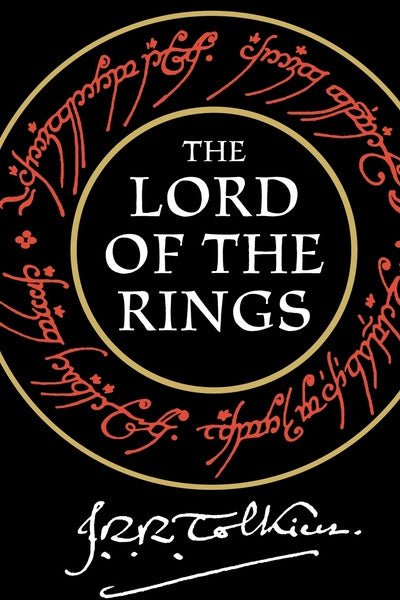
The Lord of the Rings
Publication Date: August 14, 2012
Format: Paperback
Pages: 1216
U.S. Delivery in 5-10 business days.

The Lord of the Rings is a timeless classic that has captivated readers for centuries. The story begins with Sauron, the Dark Lord, who crafted the most powerful and magical of all rings – the One Ring. Filled with his own power, this Ring would serve as his ultimate weapon to rule over Middle-earth and its inhabitants. But when an unlikely hero—Bilbo Baggins—took it upon himself to seize the ring from Sauron, it began an epic journey spanning decades in which Frodo Baggins leads an excruciatingly difficult mission: to take back what was stolen by destroying the Ring once and for all.
This thrilling and suspenseful adventure through Middle-earth follows our heroes’ courage as they face every obstacle and risk their lives in pursuit of justice. Along their path they battle demonic beasts, form friendships with mythical creatures, and prove themselves as true champions of good against evil. Through it all readers will enjoy seeing each character face their own unique challenges while struggling to stay true to their journeys -- even when faced with formidable opponents and dire situations. As we follow them on this beloved tale of courage and hope, readers won’t be able to help but feel that same enthusiasm as they join together alongside Tolkien’s beloved characters. The Lord of the Rings is one story you won’t want to miss!